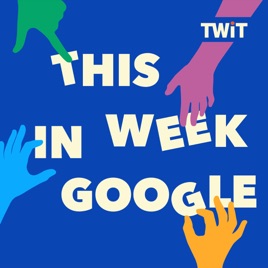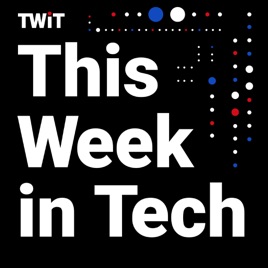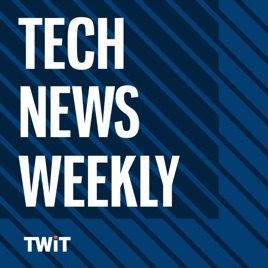
Advertise on podcast: WSJ’s The Future of Everything
Rating
4.3 from
Categories
Country
This podcast has
50 episodes
Language
Publisher
Explicit
No
Date created
2017/05/08
Average duration
20 min.
Release period
10 days
Description
What will the future look like? The Future of Everything offers a kaleidoscope view of the nascent trends that will shape our world. In every episode, join our award-winning team on a new journey of discovery. We’ll take you beyond what’s already out there, and make you smarter about the scientific and technological breakthroughs on the horizon that could transform our lives for the better.
Social media
Check WSJ’s The Future of Everything social media presence
Podcast episodes
Check latest episodes from WSJ’s The Future of Everything podcast
Science of Success: The Mind at Work Behind an Iconic Song
2024/02/23
Is it an earworm or an icon? The Super Mario Bros. theme is the soundtrack to many childhoods and has remained resonant today. Recently inducted into the Library of Congress’s National Recording Registry, the song was not easy to write. Video game composer Koji Kondo faced musical and technical challenges in creating the song. Columnist Ben Cohen talks to New England Conservatory musicologist Andrew Schartmann about how Kondo created this lasting and genre-changing piece of music.
What do you think about the show? Let us know on Apple Podcasts or Spotify, or email us: FOEPodcast@wsj.com
Further reading:
The Mind Behind the Music You Can't Get Out of Your Head
Learn more about your ad choices. Visit megaphone.fm/adchoices
more
Could AI Prevent the Next Global Supply Chain Crisis?
2024/02/16
AI has brought new challenges for corporate executives in managing their workforces and supply chains. Flex CEO Revathi Advaithi tells WSJ reporter Emily Glazer how she is adjusting to uncertainty and gives her outlook on the future of the workplace and manufacturing. This conversation was recorded at WSJ’s CEO Council Summit on December 12, 2023.
What do you think about the show? Let us know on Apple Podcasts or Spotify, or email us: FOEPodcast@wsj.com
Further reading:
Leading in Uncertain Times
Sam Altman Seeks Trillions of Dollars to Reshape Business of Chips and AI
Logistics-Tech Startups Face Uncertain Future as Freight Slump Continues
The Do’s and Don’ts of Using Generative AI in the Workplace
Learn more about your ad choices. Visit megaphone.fm/adchoices
more
How Face Scans and Fingerprints Could Become Your Work Badge
2024/02/09
Badge swipes and passwords are cornerstones of security in the modern workplace. But in a world where security is increasingly tied to biometrics and personal devices, your face or fingerprint may soon become the key to workplace security. While biometrics could provide better protection for sensitive information than an easily forgettable password, what are the privacy risks of biometric tech going mainstream? WSJ’s Danny Lewis explores the future of biometric security at work, and whether it could even go beyond face scans and fingerprints.
What do you think about the show? Let us know on Apple Podcasts or Spotify, or email us: FOEPodcast@wsj.com
Further reading:
Your Face Is Your Ticket: A Creepy Convenience
Apple Makes Security Changes to Protect Users From iPhone Thefts
Rite Aid Banned From Using AI Facial Recognition in FTC Settlement
What Is the Future of Identity Verification?
Learn more about your ad choices. Visit megaphone.fm/adchoices
more
Is AI Taking the Human Out of the HR Department?
2024/02/02
Will the human resources department be replaced by robots? Not quite, but the use of generative artificial intelligence in HR is on the rise. WSJ reporter Chip Cutter tells us how companies are incorporating AI tools internally and what might change in the future. Plus, we hear from Reshma Saujani, the founder of Girls Who Code and Moms First, who recently introduced paidleave.ai, a free AI-powered chatbot designed to help workers navigate paid family leave benefits. Saujani tells WSJ’s Charlotte Gartenberg about what she sees as the potential risks and benefits of AI in the workplace.
What do you think about the show? Let us know on Apple Podcasts or Spotify, or email us: FOEPodcast@wsj.com
Further reading:
New York City Passed an AI Hiring Law. So Far, Few Companies Are Following It.
How AI Will Change the Workplace
HR Departments Turn to AI-Enabled Recruiting in Race for Talent
The Do's and Don'ts of Using Generative AI in the Workplace
Learn more about your ad choices. Visit megaphone.fm/adchoices
more
Science of Success: The Nvidia CEO’s Lessons in Building a $1T Company
2024/01/26
Nvidia's Jensen Huang is Silicon Valley's longest tenured CEO, and his company recently joined the trillion dollar club. But if he knew at the start what he knows now, would he do it all again? WSJ Science of Success columnist Ben Cohen explains Huang’s approach to success and what that might mean for tomorrow's entrepreneurs.
What do you think about the show? Let us know on Apple Podcasts or Spotify, or e mail us: FOEPodcast@wsj.com
Further reading:
He Built a Trillion-Dollar Company. He Wouldn’t Do It Again.
Tech’s ‘Magnificent Seven’ Stocks Are Back on Top
Markets Analysis: Nvidia Stock Jumps to Record High
Learn more about your ad choices. Visit megaphone.fm/adchoices
more
Why AI Keeps Getting Better at Making Fake Images
2024/01/19
Fake images are already turning heads online, and Hany Farid, a professor of computer science at the University of California, Berkeley, says we’re only going to see more of it. Farid specializes in image analysis and digital forensics. He tells WSJ’s Alex Ossola why it’s so easy to use generative AI to create convincing fake images, and why it could cause problems in the future. Plus, he discusses the potential tech solutions that will help us decipher whether an image or video we’re seeing online is too good to be true.
What do you think about the show? Let us know on Apple Podcasts or Spotify, or email us: FOEPodcast@wsj.com
Further reading:
Real or AI? The Tech Giants Racing to Stop the Spread of Fake Images
Reality Is Broken. We Have AI Photos to Blame.
A New Way to Tell Deepfakes From Real Photos: Can It Work?
AI-Created Images Are So Good Even AI Has Trouble Spotting Some
Sharing Fake Nude Images Could Become a Federal Crime Under Proposed Law
Learn more about your ad choices. Visit megaphone.fm/adchoices
more
Alexa, Can You Hear Me? Making AI Voice Assistants Better for Everyone.
2024/01/12
AI voice assistants like Apple’s Siri and Amazon’s Alexa have become part of our everyday lives. But for people with atypical voices, including those with conditions like Parkinson’s disease and muscular dystrophy, these tools can be frustrating to use. Now a number of big tech companies including Amazon and Google, as well as research organizations are coming up with ways to make them more useful. What will it take to create voice assistants that work for everyone right out of the box?
What do you think about the show? Let us know on Apple Podcasts or Spotify, or email us: FOEPodcast@wsj.com
Further reading:
Tech Firms Train Voice Assistants to Understand Atypical Speech
Amazon Makes Alexa Chattier and More Capable Using Generative AI
Alexa, Siri, Cortana: Why All Your Bots Are Female
Deep Speech: Scaling up end-to-end speech recognition (2014, arXiv)
Librispeech: An ASR corpus based on public domain audio books (2015, IEEE International Conference)
Speech Accessibility Project from the University of Illinois Urbana-Champaign
Learn more about your ad choices. Visit megaphone.fm/adchoices
more
Why AI Should Be Taught to Know Its Limits
2024/01/05
One of AI’s biggest, unsolved problems is what the advanced algorithms should do when they confront a situation they don’t have an answer for. For programs like Chat GPT, that could mean providing a confidently wrong answer, what’s often called a “hallucination”; for others, as with self-driving cars, there could be much more serious consequences. But what if AIs could be taught to recognize what they don’t understand and adjust accordingly? Usama Fayyad, the executive director for the Institute for Experiential Artificial Intelligence at Northeastern University thinks this could be the algorithmic answer to making future AIs better at what they do, by doing something too few humans can: recognizing their own limits.
What do you think about the show? Let us know on Apple Podcasts or Spotify, or email us: FOEPodcast@wsj.com
Further reading:
How Did Companies Use Generative AI in 2023? Here’s a Look at Five Early Adopters.
Your Medical Devices Are Getting Smarter. Can the FDA Keep Them Safe?
Artificial: The OpenAI Story
Learn more about your ad choices. Visit megaphone.fm/adchoices
more
Are Sailboats the Future of Shipping? The New, Old Tech Making Waves.
2023/12/22
Sail-powered cargo ships are making waves on the seas. High-tech versions of old tools are being installed on existing cargo ships in order to reduce fuel costs and help decarbonize the industry, which currently generates 3% of all human-created greenhouse gasses. Retrofitting cargo ships with sails could make maritime shipping greener and cheaper, and even change how the complicated shipping industry works. WSJ host Danny Lewis reports.
What do you think about the show? Let us know on Apple Podcasts or Spotify, or email us: FOEPodcast@wsj.com
Further reading:
Old-School Wind Power Is Back for Cargo Shipping
Shipping Regulator to Steer Clear of Stricter Rules on Carbon Emissions
Fertilizer Companies Are Betting on Ammonia as a Low-Carbon Fuel
Learn more about your ad choices. Visit megaphone.fm/adchoices
more
The Future of Baby Formula May Be Artificial Breast Milk
2023/12/08
Breast milk imparts a number of long-term health benefits to babies, including a lower risk of asthma, obesity, Type 1 diabetes and sudden infant death syndrome (SIDS), according to the Centers for Disease Control and Prevention. But for a variety of reasons, many parents turn to formula. Now, several startups such as BIOMILQ and Helaina are working on new kinds of infant nutrition products that promise to better mimic parts of human breast milk—and may lead to advances in adult nutrition along the way. But to bring artificial breast milk to market, they’ll need to do some tough science and overcome regulatory and ethical hurdles.
What do you think about the show? Let us know on Apple Podcasts or Spotify, or email us: FOEPodcast@wsj.com
Further reading:
The ‘Arms Race’ to Build a Better Baby Formula
Baby-Formula Shortage Worsened by Drop in Breast-Feeding Rates
Baby-Formula Makers Face FTC Investigation for Collusion
Learn more about your ad choices. Visit megaphone.fm/adchoices
more
A Nuclear Power Plant in Your Backyard? Future Reactors Are Going Small
2023/11/22
The next generation of nuclear power plants could be tiny, and that could mean big things for carbon-free electricity. Several companies including NuScale Power and Bill Gates’ TerraPower are developing small modular reactors that promise to be more adaptable than the towering conventional nuclear power plants. After years of development and growing investment, the first of these next-generation reactors could go online by 2030. But will their promises to provide safe and plentiful energy live up to the hype, and overcome the economic challenges of their predecessors? WSJ’s Danny Lewis looks at what small reactors could mean for the business of nuclear power and how you get your electricity.
What do you think about the show? Let us know on Apple Podcasts or Spotify, or email us: FOEPodcast@wsj.com
Further reading:
A Futuristic Plan to Make Steel With Nuclear Fusion
Nuclear Power Is Staging a Comeback, but Is It Affordable and Safe?
OpenAI’s Sam Altman Is Taking a Nuclear-Energy Startup Public
Nuclear Power Is Poised for a Comeback. The Problem Is Building the Reactors.
Learn more about your ad choices. Visit megaphone.fm/adchoices
more
Hearing Aid Tech Isn’t Just for Listening Anymore
2023/11/10
There may come a day when everyone will be wearing hearing aids. That’s because today’s hearing aids can do much more than clarify and amplify sound. Companies like Starkey are adding features like cognitive activity tracking and exercise monitoring. They’re developing tech that aims to warn users before they might fall and predict aspects of mental health too. If barriers like high cost and social stigma are addressed, hearing aids could become a vital accessory, whether or not you’re one of the 55 million Americans projected to have hearing loss by 2030.
What do you think about the show? Let us know on Apple Podcasts or Spotify, or email us: FOEPodcast@wsj.com
Further reading:
Wait, Are Hearing Aids Cool Now? Ask Millennials
Apple AirPods Could Help You Hear Better
Buying Help for Over-the-Counter Hearing Aids—Whether You Spend $250 or $2,500
Cheaper Over-the-Counter Hearing Aids Are Coming. Here’s How to Comparison Shop.
Cures for Hearing Loss May Be Found in New Drugs
Using Teeth to Help Restore Hearing
Better Hearing Can Lead to Better Thinking
Learn more about your ad choices. Visit megaphone.fm/adchoices
more
Podcast reviews
Read WSJ’s The Future of Everything podcast reviews
scooter s tjimetson 888
2023/07/31
Great news/tech broadcast
Just the right amount of information and detail. Credible reporting on interesting topics.
Jim Hull MA
2023/04/17
Superb Deep Look in Sciences
Excellent extensive investigations in an intelligent, accessible conversational presentation
toomanyaveragepodcastsnow
2023/05/31
Would’ve liked to listen but couldn’t
Some other reviewers on here have mentioned the excessive vocal fry from some of the reporters. The vocal fry really does make me think I’m listening ...
more
BillyBobJoeSaysYo
2023/02/22
Love this Podcast
Great way to keep aware of interesting advances in a broad array of subject areas. Do a good job of not overwhelming with technical jargon.
Elliot F.
2023/04/16
Good subjects with a smug leftist approach
Light Sceince with a clearly left approach.
For instance, the water recycling issue includes a number of positive Gov. Newsom quotes when in fact par...
more
JDC85DC
2023/03/11
The vocal fry is horrible
Great content. Isabelle’s vocal fry makes it unlistenable.
Biiil
2023/03/10
Arctic cables and melting ice
That reporter has a horrific vocal fry that was painful to hear. please keep her off of the air until she learns how to speak properly and pleasantly.
TeqTiger
2022/12/10
Great topic, bad interview
Cloud seeding is an excellent topic for informative discussion. Unfortunately, this guest was entirely underwhelming and the interviewer didn’t really...
more
littlest cowboy
2022/07/23
This pod used to be good
Your guest on bio whatever didn’t even know how to explain what she’s doing. Bunch of gobblety goop
Marcus517
2022/05/11
What happened to the WSJ
This has to be a separate group from WSJ. Both light weight and biased.
The recent Rosetta Stone article talked about how the recent decoding of the ...
more
Podcast sponsorship advertising
Start advertising on WSJ’s The Future of Everything & sponsor relevant audience podcasts
You may also like these technology Podcasts

4.1
662
90
This Week in Google (Audio)
TWiT

4.3
130
259
Practical AI: Machine Learning, Data Science
Changelog Media

4.8
259
418
Rene Ritchie
Rene Ritchie

4.6
95
377
AppleInsider Daily
AppleInsider

3.9
2828
93
This Week in Tech (Audio)
TWiT

4.7
152
194
Last Week in AI
Skynet Today

4
1056
91
Tech News Weekly (Audio)
TWiT

4.4
412
300
Ask Drone U
Drone U

4.7
15
147
Fire Science Show
Wojciech Wegrzynski

4.5
1204
161
Marketplace Tech
Marketplace



